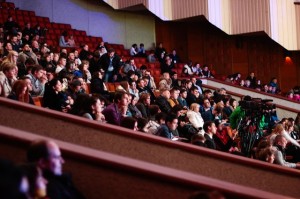 Many of our world’s worst problems are so complex and long-standing, that they seem impossible to solve. Even when progress is made in one area, it appears we take two or three steps backwards before we can begin to move forward. Often, it can be difficult to come up with possible solutions, or even to define the root problem.
Many of our world’s worst problems are so complex and long-standing, that they seem impossible to solve. Even when progress is made in one area, it appears we take two or three steps backwards before we can begin to move forward. Often, it can be difficult to come up with possible solutions, or even to define the root problem.
An upcoming summit seeks to provide attendees with the latest evidence synthesis and implementation research to show them how to use evidence to inform their mission, as well as their policies and practices and the strategies that they deploy to advance their cause. When nonprofits use evidence to inform their actions and activities, it improves their ability to serve all their stakeholders.
GEIS 2018 Details
The Campbell Collaboration and the Centre for Evidence and Implementation are co-hosting the summit, as it is a combination of conferences normally held by each organisation, the What Works Global Summit 2018 and the 4th Australasian Implementation Conference. The three-day event will be held from 8 a.m. to 5 p.m. each day, 22-24 October at the Melbourne Convention and Exhibition Centre, at 1 Convention Centre Place, in South Wharf. Over 700 delegates from 30 countries are expected to attend the event, that will focus on how to use evidence to improve lives and build stronger communities the world over.
Standard registration is $890 with student registrations receiving a discounted rate of $450. Accompanying guests or day registration delegates will be charged a $60 fee for the welcome reception only. Day registration is $350, with a maximum of two days. Accommodation bookings close on September 18th, so you will want to register soon to avoid missing out!
What to Expect at the Summit
The director of Giving Evidence, Caroline Fiennes, will be one of the key speakers at the event. This organisation supports using firm evidence to guide philanthropic efforts. Additional keynote speakers include Richard Weston, the CEO of the Aboriginal and Torres Strait Islander Healing Foundation and Professor Hirokazu Yoshikawa, co-director of the program Global TIES for Children at NYU.
Expert-led panels will present information on a wide variety of topics, with a particular emphasis on the role that evidence-based models and decisions can play in increasing impact. They include presentations on Monitoring and Evaluation Capacities and Systems by the International Fund for Agricultural Development (IFAD) Panel, and the International Initiative for Impact Evaluation Panel’s presentation on Building Responsible Government.
Some of the themes of the summit include collaborations, partnerships and cooperation on the national and global level, sustainability and scaling, improving policies, practices and programs with evidence and knowing what works. Attendees are from a diverse range of positions and sectors, including researchers, policy makers, and practitioners working in the fields of health and human services, early childhood, environment and climate change, humanitarian aid, crime and justice, international development and many more!
If you would like to learn more about the summit, or need to register online, please visit the event website for more details!

 Posted on 5,Sep |
Posted on 5,Sep |
 Posted by Anne
Posted by Anne 




There are no comments yet